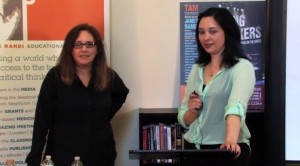
The common notion about being a “skeptic” is that you hold a generally questioning attitude or have a dubious opinion on a certain topic. At the extreme, terms like “climate skeptic” or “truther” express distrust and denial of scientific conclusions. Scientific skepticism, however, is an approach that emphasizes evaluating claims based on evidence. The process of skepticism is of great value to society to lessen the potential of believing or investing in something that isn’t all it appears to be, which may have social, financial or even tragic consequences.
This presentation will provide a look into organized skepticism — what it is, what it means to be a skeptic, what skepticism isn’t, and why it’s important for everyone to know how to apply it in a world overloaded with questionable information. Come visit with some friendly neighborhood skeptics who can help you sort through the nonsense and critically evaluate some extraordinary claims. Find out the difference between merely saying “I’m skeptical” and REALLY applying skepticism.
The next rather obvious question is “who is giving it? The answer is Sharon Hill and Barbara Drescher, and so if you are familiar with the skeptical community, your immediate reply will be, “Oh fantastic”, because they are both very smart and well-experienced skeptics who have over time not only made very valuable contributes, but have also made a real difference out there.
Sharon Hill is a science writer and speaker known for her research into the interaction between science and the public, with a focus on education and media topics. Hill’s research has dealt particularly with topics of the paranormal, pseudoscience, and anomalous natural phenomena, and began at the University at Buffalo (SUNY), where she performed her graduate work in this area. Hill attended Pennsylvania State University, earning her B.S. degree in Geosciences, and works as a geologist in Pennsylvania. She is also the founder of Doubtful News. (You should check it out).
Barbara Drescher teaches research methods, statistics, and cognitive psychology at California State University, Northridge, where she has focused her research on perception, attention, learning, and reasoning. On her critical thinking website, ICBSEverywhere.com, she evaluates claims and research, discusses education, and promotes science and skepticism.
And so it is at about this point that you might Quip … “OK, I’m sold, where is the video?” … and so here you go … enjoy. It runs for 1 Hour 21 minutes.